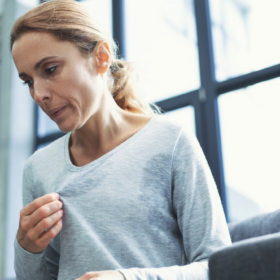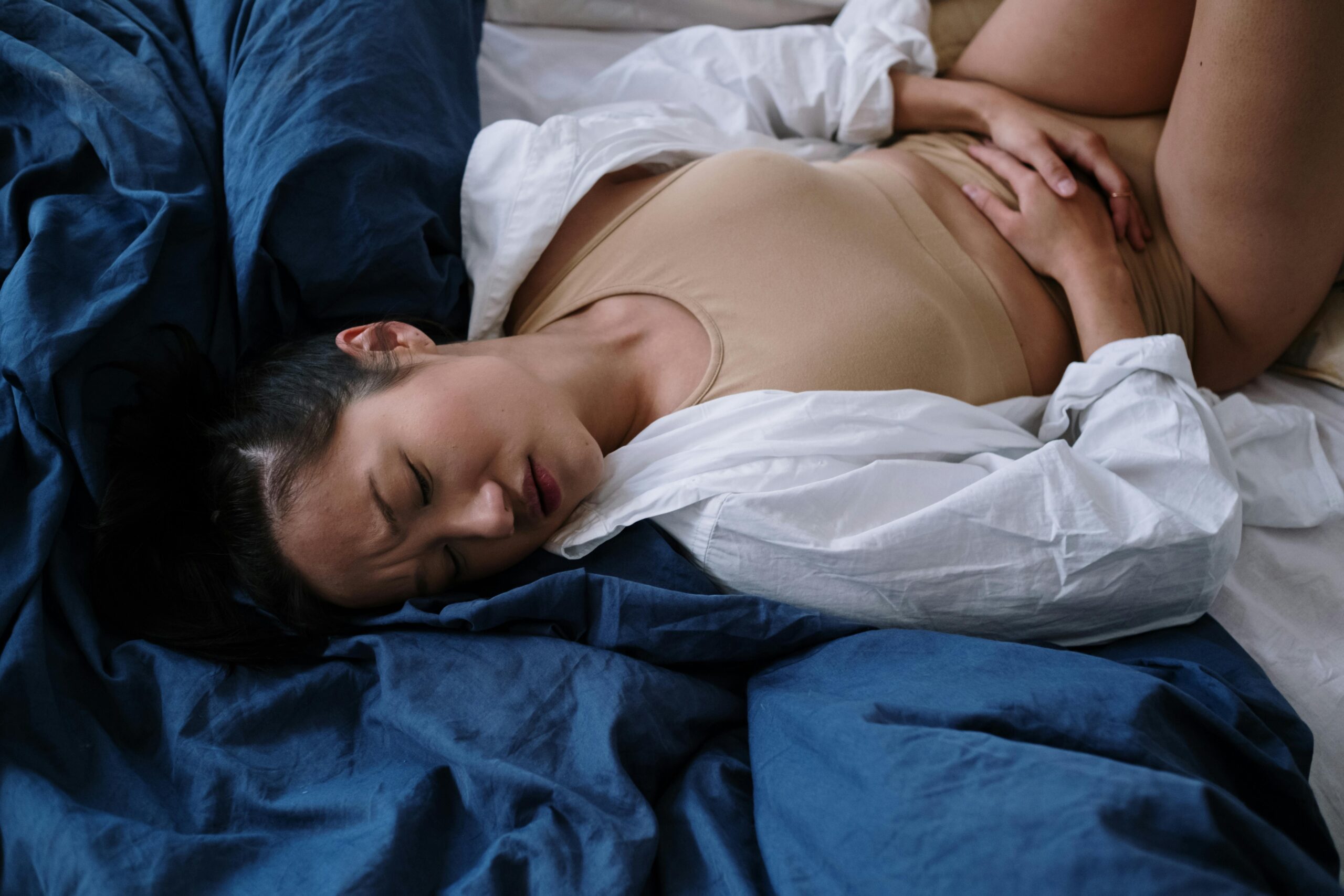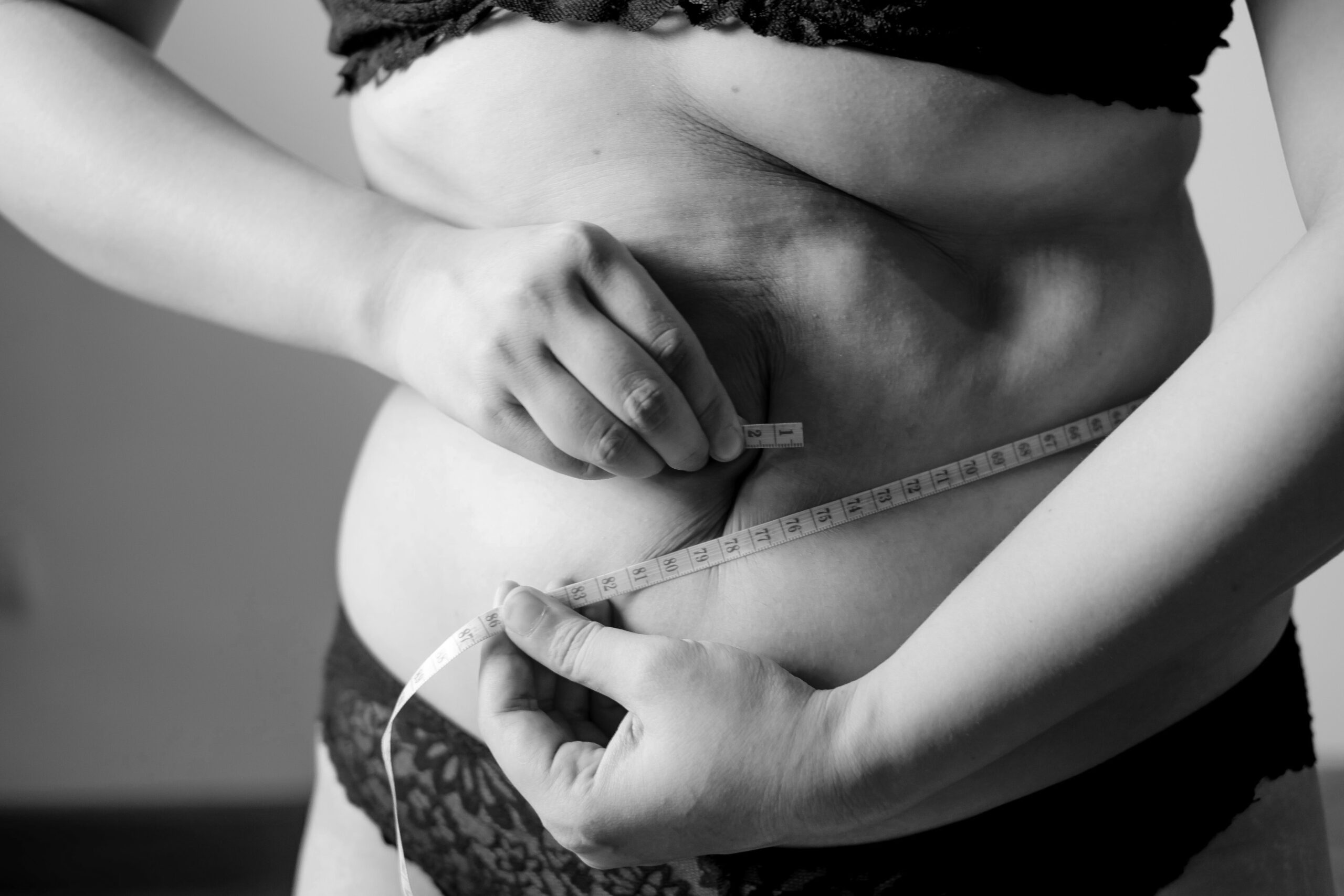
Can perimenopause cause itching?
In this article
What's the lowdown?
Hormonal changes around perimenopause can cause changes to the skin all over your body, which can lead the skin to dry out and become itchy.
Sometimes the symptoms are mild, but for some women they can be severe and can have a big impact on their sleep and general quality of life.
Some simple changes to the toiletries you use and the clothes you wear can help the symptoms.
There are also some non-hormonal and hormone-based medications that may help you.
Can perimenopause cause itching?
Yes, perimenopause can cause itching, it is a common and often overlooked symptom. In fact, around two thirds of women will experience itching in the perimenopause1. Women may get itching of various places on their body including:
- Skin
- Ears
- Scalp
- Bottom
- Eyes
- Nipples
- Vulva
So let’s understand why and how you can get help.
Why does perimenopause cause itching of the skin?
In perimenopause women’s ovaries produce less oestrogen, which affects the body’s ability to produce natural oils. There is also less collagen produced in the perimenopausal period. Collagen is a protein which helps the skin to feel elastic and strong. A third of the collagen in your skin is lost in the first 5 years after menopause1. So, as oestrogen and collagen levels fall in perimenopause, the skin can feel thin, dry, flaky or itchy.
High or low temperatures, and low humidity levels can also dry out the skin, making itching worse. Soap-based cosmetics and wearing synthetic clothing also exacerbate things1.
Perimenopause skin itching can impact the skin all over women’s bodies. This includes the eyes, scalp, ears and body. Perimenopause genital itching, perimenopause itchy bottom and perimenopause itchy nipples are also common symptoms.
What can I do to improve perimenopause itching?
Soap tends to draw moisture out of the skin, so try to switch to soap-free toiletries wherever possible. Soap-free body washes are available, or you could use an emollient (moisturiser) instead of shower gel or bubble bath2.
Try to have cool or lukewarm baths or showers, and keep these short if you can. This is because exposure to hot water can dry out the skin further, making itching worse2.
Moisturise your skin regularly using a fragrance-free moisturiser2. It’s best to do this after a bath or shower as your skin is likely to absorb the moisture more effectively when it is warm.
Wear clothing made of cotton or from natural (rather than man-made) fibres2. These are usually less irritating to the skin. They also keep you cooler, so if hot flushes are also causing you bother, this is a win-win.
Try to keep your bedroom at a cool and even temperature to keep your skin comfortable and promote sleep which is very helpful for the perimenopause itch at night.
Try not to scratch the itch! Try patting or tapping your skin instead2. This is because when you itch your skin, a chemical called histamine is released, which causes the skin to become more itchy. It can then be more difficult to break the cycle. If you are itching your skin, try to keep your nails short and smooth, so that they don’t cause damage to the surface of your skin.
Medical treatments for perimenopause itching?
If your itching is severe, doctors can prescribe steroid-based creams or ointments to apply to your skin. These can be used in short bursts (usually for a week to ten days). They work by reducing the inflammation in the skin. Different strength treatments are available for use on various areas of the body3.
Hormone replacement therapy (HRT) with oestrogen and progesterone may help with the symptoms of perimenopause itchy skin. HRT increases the amount of available oestrogen, which then helps to strengthen the skin all over the body3. Perimenopause itching at night can disrupt your sleep.
The progesterone component of hormone replacement therapy can cause drowsiness, which may help you sleep more deeply and cause the itch to become less bothersome. HRT may also help with other symptoms in the perimenopause period. Speak to your GP to decide if this is a suitable treatment for you.
An antihistamine tablet (the same as you might use for allergies or hayfever), can also help reduce itching2. Examples include drugs such as chlorpheniramine (an antihistamine which causes drowsiness), loratadine or fexofenadine (antihistamines which do not cause drowsiness).
Perimenopause and itchy vulva
A perimenopause itchy vulva can be treated using specialised vaginal moisturisers or oestrogen-based creams. This can be given either as a pessary (a tablet that you put inside the vagina), or a cream to use on your vulval skin3. Low-dose vaginal estrogens can be used for as long as you need to and can also be safely used in combination with HRT4. Your GP can prescribe this for you, or you can buy them from a pharmacy if you are over 50 and postmenopausal.
Perimenopause itching and thinning of the vulval skin can lead to less vaginal secretions, which can make sex uncomfortable4, or sometimes cause a small amount of bleeding after sex. Vaginal lubricants can help with this – you can buy these here.
Summary
During the perimenopause period, hormonal changes can affect the skin all over your body and can have a significant impact on your sleep and quality of life
There are lots of things you can try to help the symptoms, but if you are still struggling, please see a doctor, who can help with medical treatments.
Our medical review process
This article has been medically reviewed for factual and up to date information by a Lowdown doctor.






